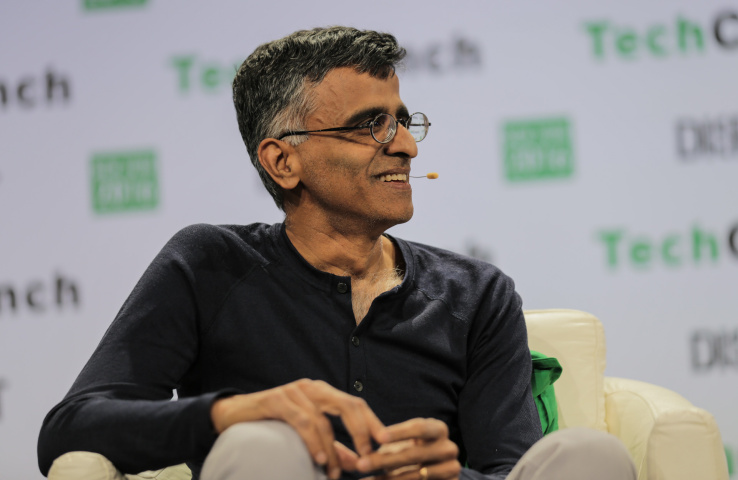

Google’s Senior Vice President of Ads & Commerce Sridhar Ramaswamy took the stage at TechCrunch Disrupt NY today for a wide-ranging conversation with our own Anthony Ha.
Given the current conversation around ad blocking and Google’s reliance on advertising as its main revenue source, it’s no surprise that the conversation also touched upon this rather controversial topic. Ramaswamy acknowledged the problem, but also argued that ad blocking is first and foremost a user problem.
“It’s happening because users have ads that slow down their pages,” he said, and added that this is an especially bad problem on mobile. Ramaswamy believes the industry has to do a better job of policing itself and that a solution — whatever that may be — can’t just be a Google solution, because only an industry-wide solution will have the necessary credibility. “This has to be seen as a fair industry standard rather than something Google is pushing,” he said.
As for mobile, Ramaswamy noted that Google’s first mobile ads ran on feature phones in 2005. Today, everything his team does is mobile-first, though. The big wake-up call for the team was seeing data a few years ago that showed that mobile searches would soon outnumber desktop queries. While it’s easy to think of mobile as a problem for Google, Ramaswamy says he thinks of it as an opportunity. “But you have to be in a different mindset when it comes to UI design,” he noted.
On mobile, of course, there is still a wide split between ads on the web and in apps. As far as apps go, Ramaswamy believes that “the app model is still very clunky” because it takes time to download apps and install them (and then they are often forgotten). He thinks the worlds of the web and apps will “blend together” over time, though.
Ramaswamy also thinks that mobile may enable new micropayment models, too. The Internet is overly reliant on advertising, he believes. If you were signed in on every browser — as you probably are on mobile — maybe you would think differently about paying a few cents for every article you read. The health of the Internet, he believes, depends on enabling more non-ad monetization options for publishers. Based on this, it’s probably worth keeping an eye out for how Google plans to enable this scenario going forward.
Advertising, of course, relies on having lots of data about users. Opinions probably vary here, but Ramaswamy argues that Google has led the way in terms of transparency and that his team always puts the users first. While Google has tools for checking what the company knows about you, the reality is that few users actually use them. Because of this, Ramaswamy says it’s important to have “a simple contract with users.”

